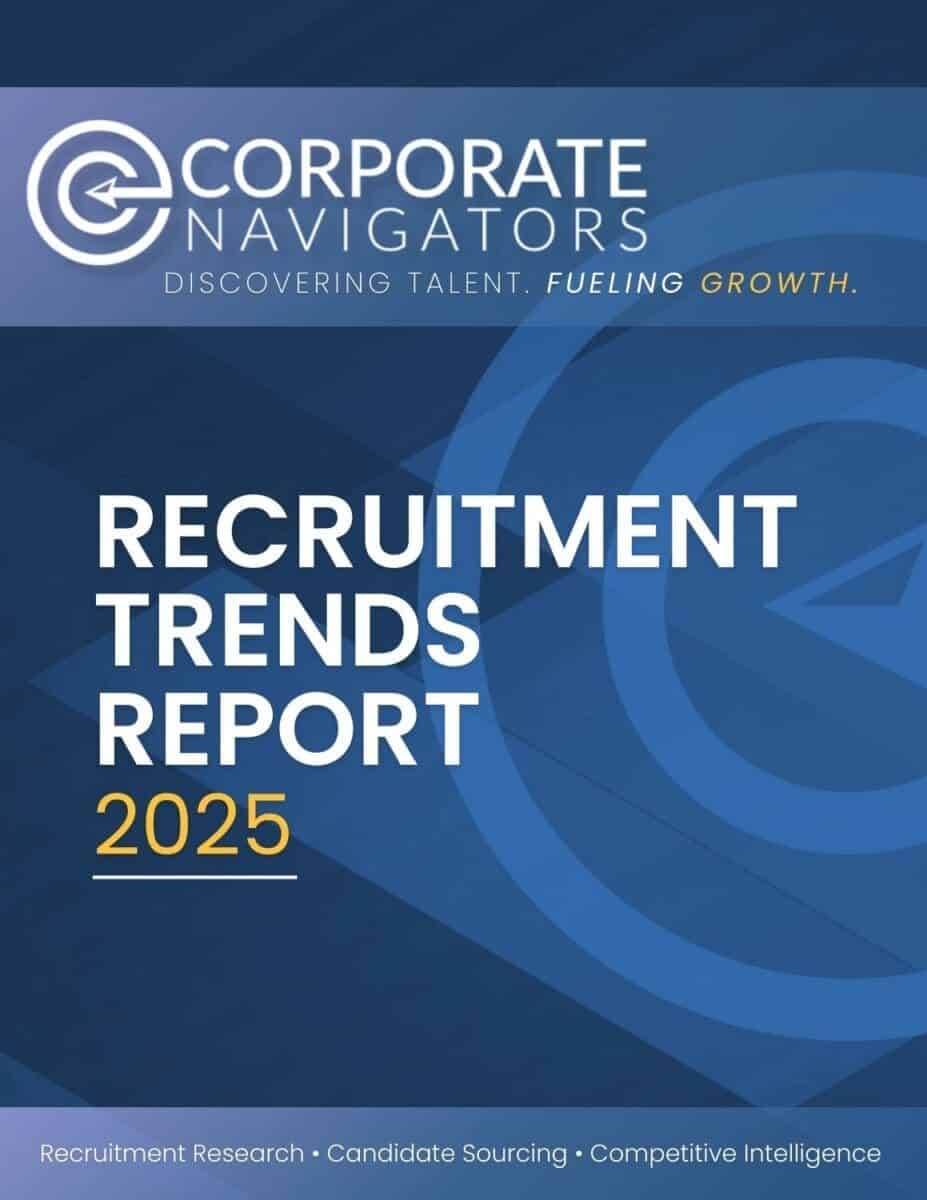Our 2025 Recruitment Trends Report
Our 2025 Recruitment Trends Report contains curated recruiting data and insights from our President, Mitch Golob, who has over 25 years of experience in the recruiting research space. Details to expect:
- ✔️ Demographic Changes
- ✔️ Recruitment Budget Trends
- ✔️ Candidate Expectations
- ✔️ Average Cost-per-Hire
- ✔️ Average Turnover Rates
- ✔️ Benefits Package Trends
- ✔️ Predictions from President Mitch Golob
Recruitment is Changing in 2025.
Every good recruiting strategy begins with staying on top of industry trends. Our 2025 Recruitment Trends Report reveals a dynamic shift in the talent acquisition landscape, driven by technological advancements and evolving candidate expectations. In this report, you can expect to find a lot of recruiting data like average times to fill, cost-per-hire, turnover rates, candidate expectations, and other relevant recruiting statistics.
This upcoming year, organizations are increasingly leveraging artificial intelligence and machine learning to streamline candidate sourcing process, enhance candidate experience, and make data-driven hiring decisions. Automated systems are not only speeding up the initial stages of recruitment but also enabling more personalized interactions with potential hires, fostering a more engaging and efficient recruitment journey.
Our report also highlights what candidates really want. There is a growing emphasis on brand image, diversity, equity, and inclusion (DEI) in recruitment strategies. Companies are implementing more robust DEI initiatives, focusing on creating inclusive job descriptions, diversifying sourcing channels, and mitigating unconscious bias throughout the hiring process. This commitment to DEI is not just a response to societal expectations but a strategic move to attract a wider talent pool and drive innovation within organizations, closing skill gaps.
In addition to these transformative trends, our 2025 Recruitment Trends Report also delves into the impact of budget adjustments on talent acquisition strategies. Organizations are increasingly reallocating their recruitment budgets towards investing in long-term talent management and proactive talent sourcing rather than reactive, short-term hiring solutions. In this way, you can do your best to eliminate factors that cause good employees to quit their jobs.
This shift reflects a strategic focus on nurturing relationships with passive candidates well before job openings arise, thus reducing time-to-hire and improving the quality of new hires. Companies are also enhancing their recruitment technology investments to better manage and engage these talent pools, which are increasingly looking toward broader talent pools due to upcoming talent shortages.
Furthermore, evolving preferences around benefits packages are playing a significant role in shaping recruitment strategies, whether they are entry level or C-suite. Candidates today are seeking more than just competitive salaries; they are prioritizing holistic benefits that support their overall well-being. This includes flexible working hours, mental health resources, and comprehensive family support programs.
As a result, organizations are revisiting and expanding their benefits offerings to attract and retain top talent. This trend highlights the growing importance of aligning benefits packages with the diverse needs and expectations of a modern workforce, reinforcing the need for companies to be adaptable and responsive in their approach to employee value propositions.
We hope you take something from this report to help you make better business decisions. As you navigate these trends, more information can help you stay agile and innovative to build a resilient and future-ready workforce, ensuring that your recruitment strategies not only meet current demands but also anticipate future needs.
Recruiting Research at Corporate Navigators
If you’re interested in finding out more about our recruiting research services after reading our report, then we’d be glad to meet with you. Whether you need to generate names through recruitment research, verify qualification and interest through candidate sourcing, generate organizational charts, discover what your competition is offering through competitive intelligence, or to build a candidate pipeline, we can help you achieve your recruitment goals.
We are experts in sourcing candidates while ensuring maximum accuracy through human-verified means. For more information, contact us or check out our brochure!


